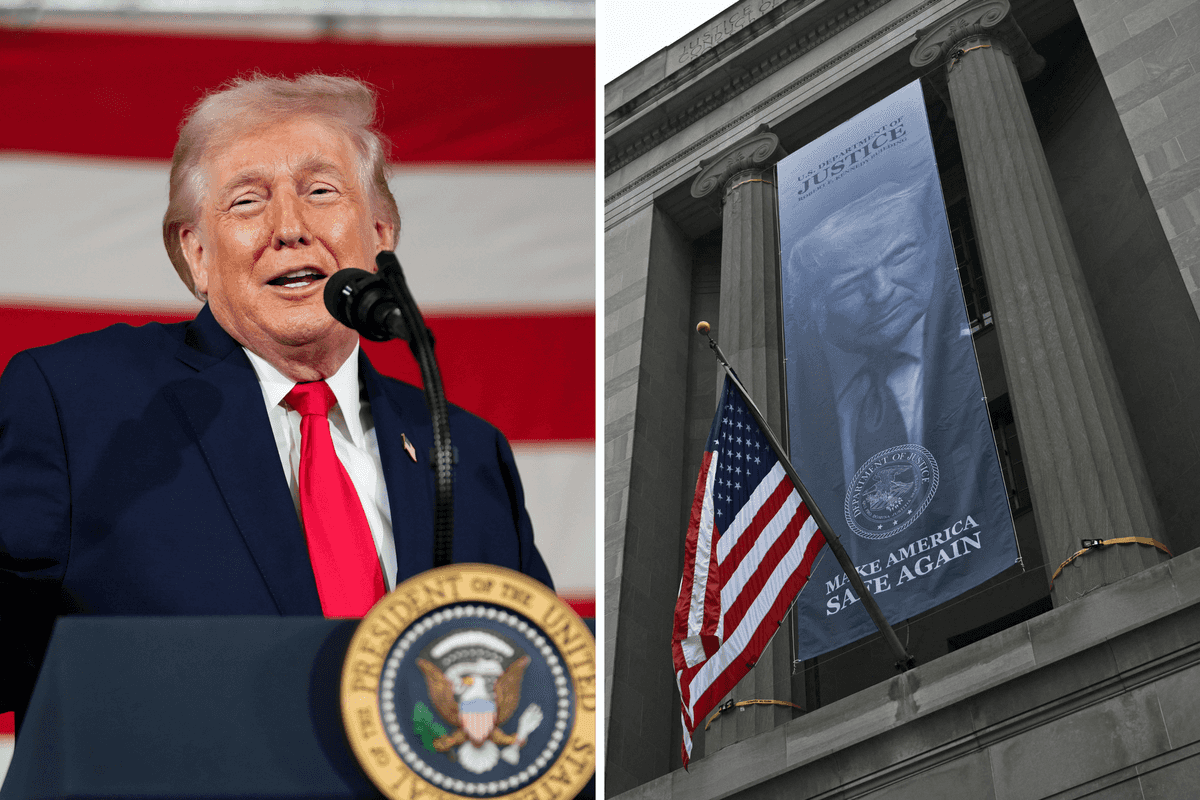
A rare super blue moon has appeared over the UK, treating stargazers to a phenomenon that will only happen once this year.
Unlike its name suggests, a blue moon is not named after the colour and instead refers to the second full moon in one calendar month.
Most months only have one full moon, so a second is quite a rare event, occurring approximately once every two or three years.
Appearing larger than usual, it was expected to rise at around 8pm (BST) on Thursday to then set at around 6am (BST) the following day, but it shone on Wednesday night.
The best time to catch a glimpse is when local conditions are best suited to a clear sky – low cloud cover, favourable weather, and no obstructions on the horizon – such as buildings or trees.
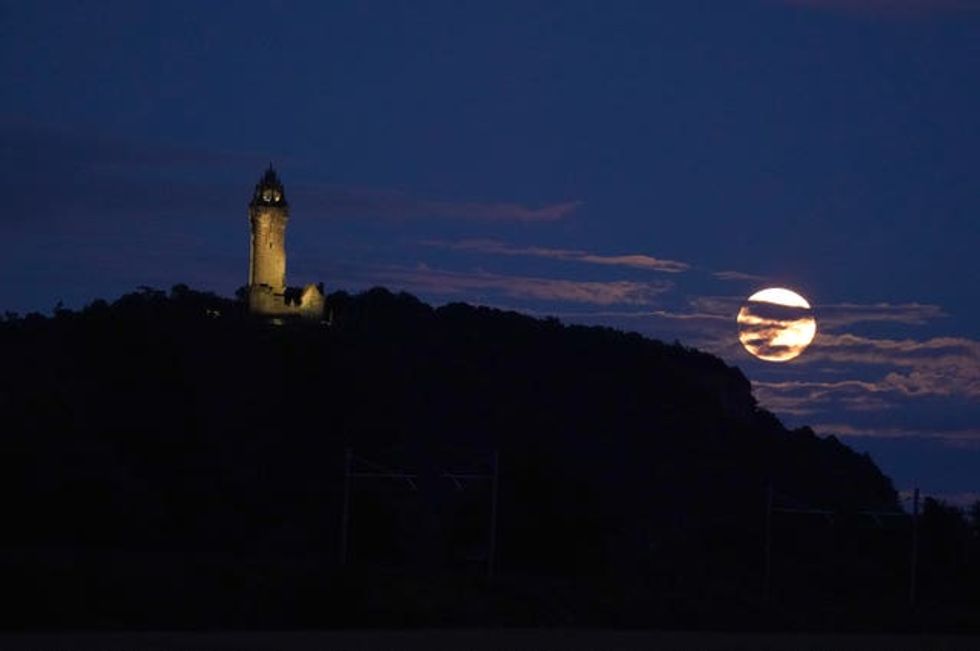
Astronomer Professor Don Pollacco, from the Department of Physics at the University of Warwick, said: “One of the flukes of nature is that the apparent size of the Moon can be very similar to that of the Sun.
“This occurs because, while the Moon is much smaller than the Sun, it is much closer to the Earth.”
Adding that the Moon has an elliptical orbit around the Earth, he continued: “Now that we understand the Moon’s orbit around the Earth we can talk about super moons.
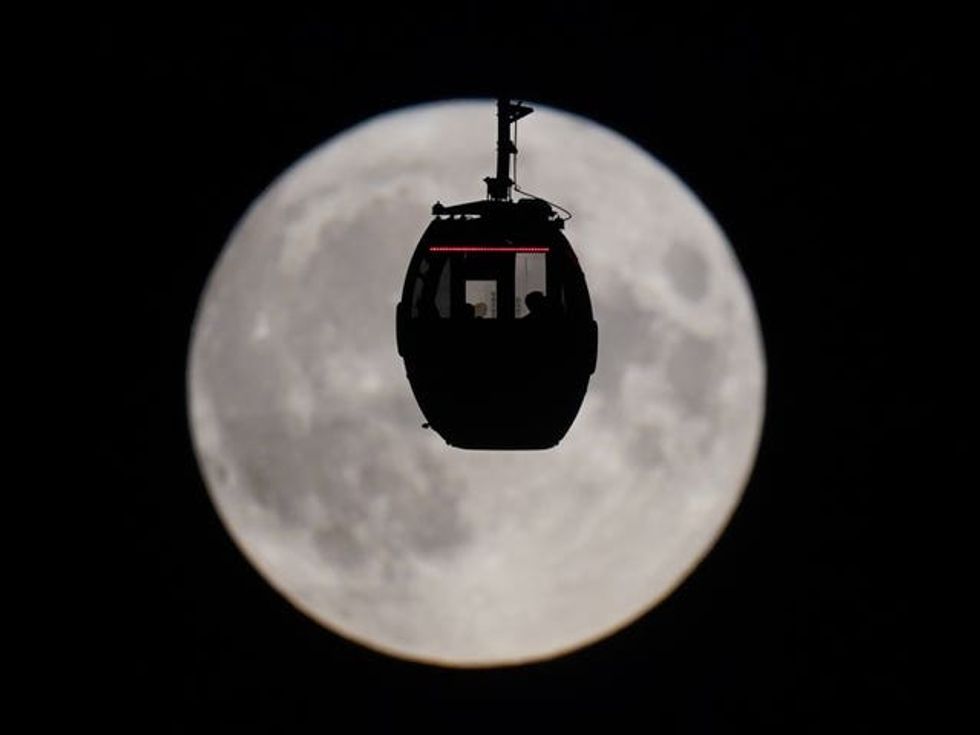
“These occur when there is a full moon at the time when the Moon is closest to the Earth.
“Consequently, the Moon can look bigger (10-15%) and brighter (25-30%) than a normal full moon.”
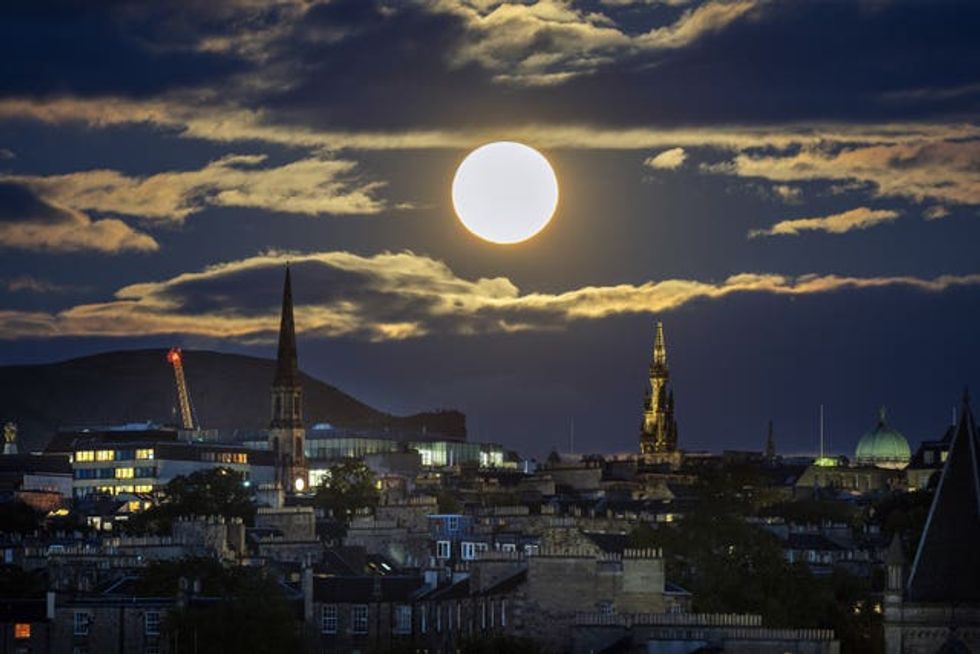
Prof Pollacco said: “The moon is so bright that we can see it when it’s not particularly dark or even if the weather isn’t particularly clear.
“It will be visible all night and set in the west around sunrise.”
Dr Greg Brown, astronomer at Royal Observatory Greenwich, said: “August brings the joining of two rare events in astronomy: a blue moon and a supermoon.
“However, both events have somewhat complicated definitions, and none are universally accepted.
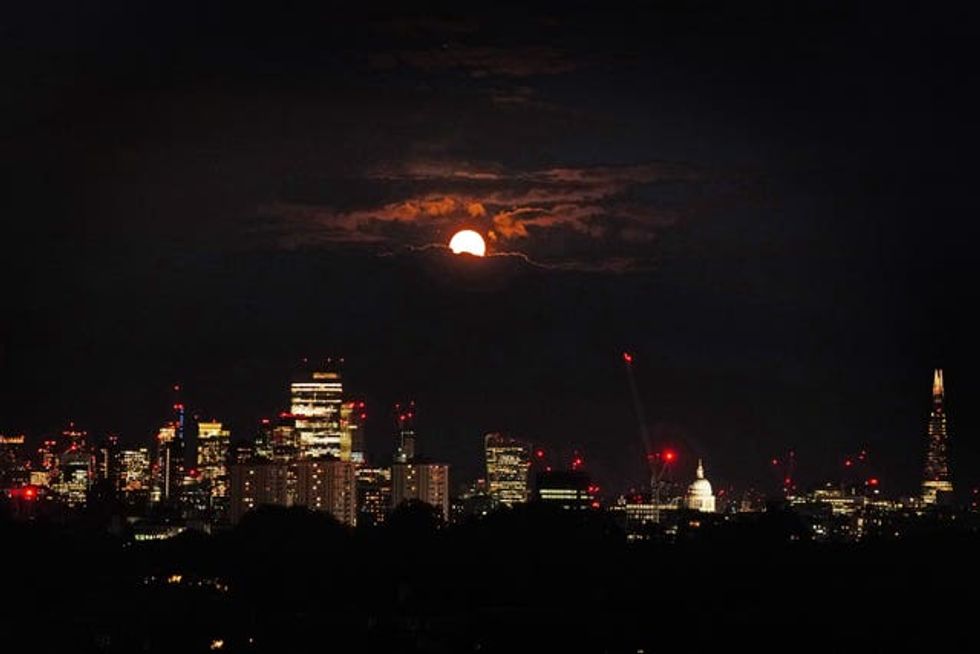
“The most common definition of a blue moon is that it is the second full moon in one calendar month.”
He added: “A supermoon, on the other hand, is a full moon that occurs when the moon is in the closest part of its orbit around the Earth, though exactly how close it needs to be to make it ‘super’ is up for debate.
“During this time, the Moon will appear a little bigger and brighter than it normally does, though the difference is hard to spot by eye.”





